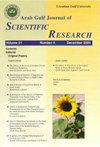Sustainable halal food supply chain management in a small rentier halal market
Q4 Business, Management and Accounting
引用次数: 2
Abstract
PurposeThere is limited knowledge of the sustainable halal food supply management in Brunei Darussalam (Brunei), although it is reputable in the halal economy and advocates the United Nations (UN) Sustainable Development Goals (SDGs). Therefore, this paper highlights issues faced in a small, rentier halal market and proposes sustainable supply chain management (SSCM) initiatives for halal-certified food companies in Brunei.Design/methodology/approachThis paper draws data from published academic research and employs a normative and narrative assessment of SSCM and halal supply chain literature.FindingsFour normative SSCM initiatives and propositions that could be implemented by Brunei halal-certified food businesses in achieving the SDGs are highlighted: responsible sourcing, environmental purchasing, sustainable packaging and green transportation.Practical implicationsThis viewpoint paper provides a basis for achieving the “Brunei Vision 2035” through a sustainable supply chain lens that may increase well-being and develop a productive and sustainable economy. It also lays a foundation for realising the SDGs, specifically Goal 12 of Sustainable Consumption and Production.Originality/valueThe dedicated attention to smaller halal markets, such as Brunei, would enrich the literature, reveal unforeseen issues or address gaps in the domains of SSCM and halal food supply chains.一个小食用者清真市场的可持续清真食品供应链管理
文莱达鲁萨兰国(文莱)对可持续清真食品供应管理的了解有限,尽管它在清真经济中享有声誉,并倡导联合国(UN)可持续发展目标(SDGs)。因此,本文强调了在一个小的、食利者的清真市场所面临的问题,并为文莱的清真认证食品公司提出了可持续供应链管理(SSCM)倡议。设计/方法/方法本文从已发表的学术研究中获取数据,并对SSCM和清真供应链文献进行了规范性和叙述性的评估。报告强调了文莱清真认证食品企业在实现可持续发展目标方面可以实施的四项规范性SSCM倡议和主张:负责任采购、环保采购、可持续包装和绿色运输。这篇观点论文为通过可持续供应链的视角实现“文莱2035愿景”提供了基础,这可能会增加福祉,并发展富有成效和可持续的经济。它还为实现可持续发展目标,特别是可持续消费和生产的目标12奠定了基础。独创性/价值专注于较小的清真市场,如文莱,将丰富文献,揭示不可预见的问题或解决SSCM和清真食品供应链领域的差距。
本文章由计算机程序翻译,如有差异,请以英文原文为准。
求助全文
约1分钟内获得全文
求助全文
来源期刊

Arab Gulf Journal of Scientific Research
综合性期刊-综合性期刊
CiteScore
1.00
自引率
0.00%
发文量
0
审稿时长
>12 weeks
期刊介绍:
Information not localized
 求助内容:
求助内容: 应助结果提醒方式:
应助结果提醒方式:


